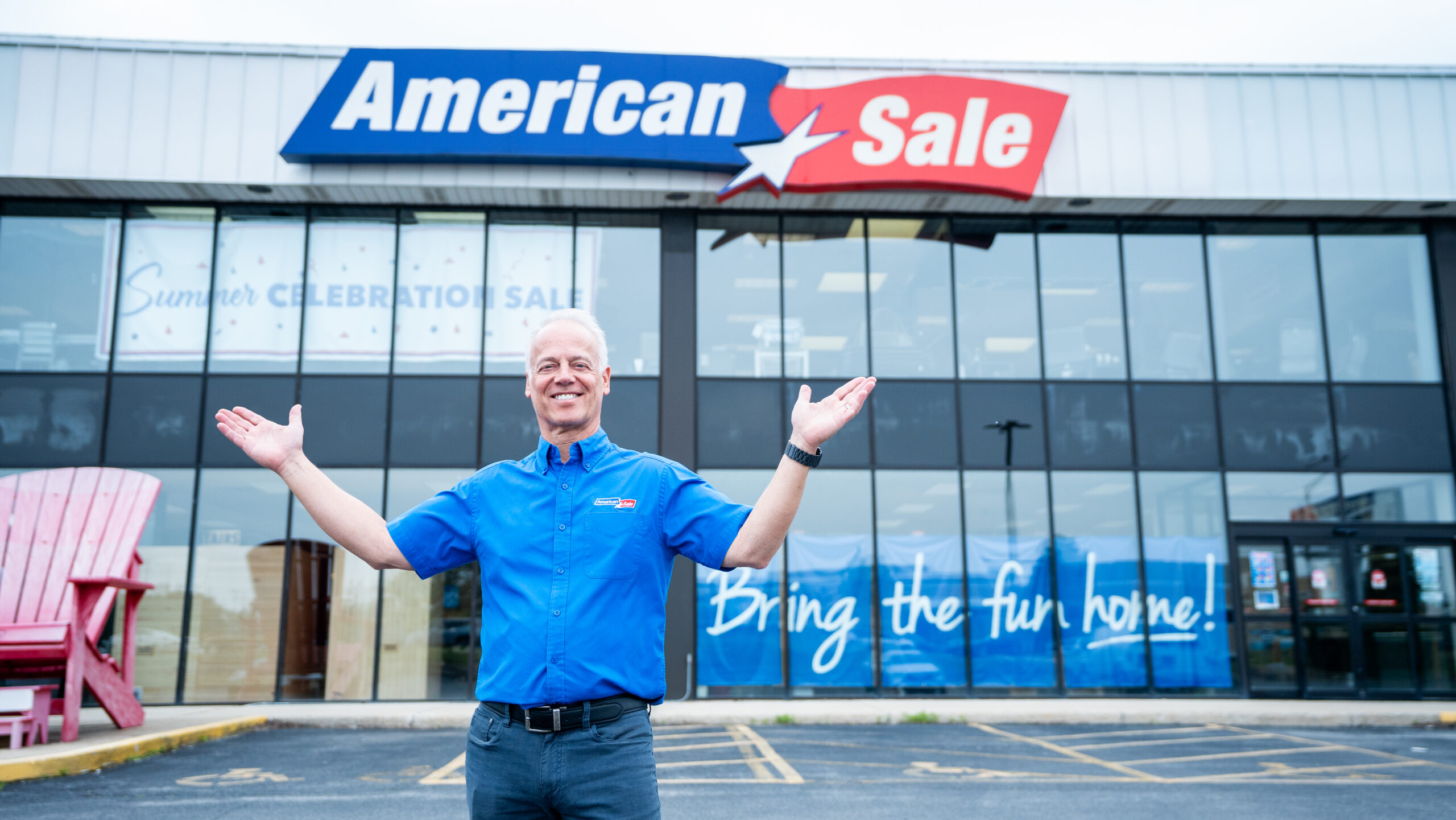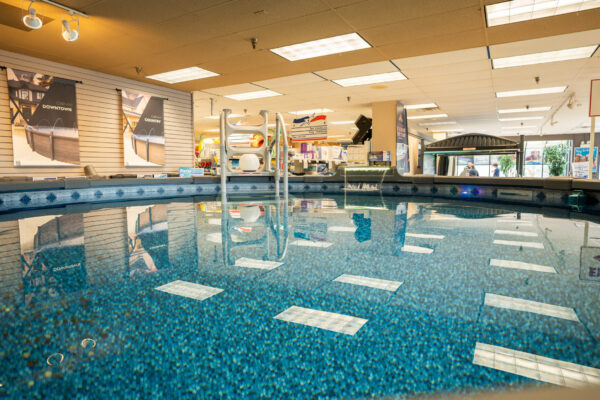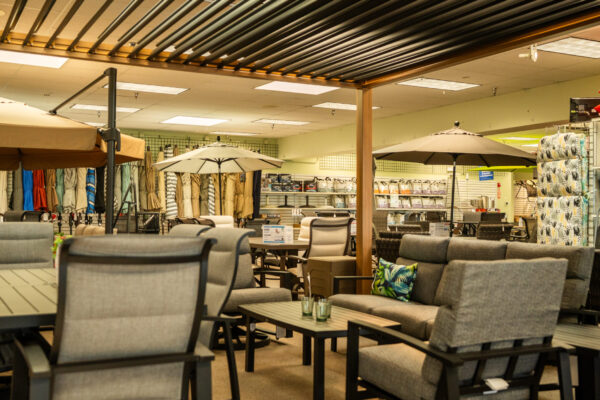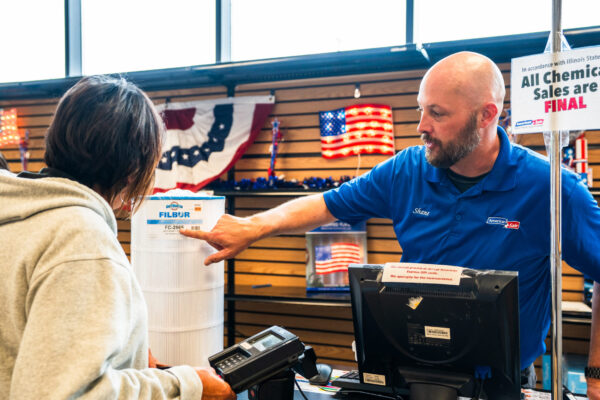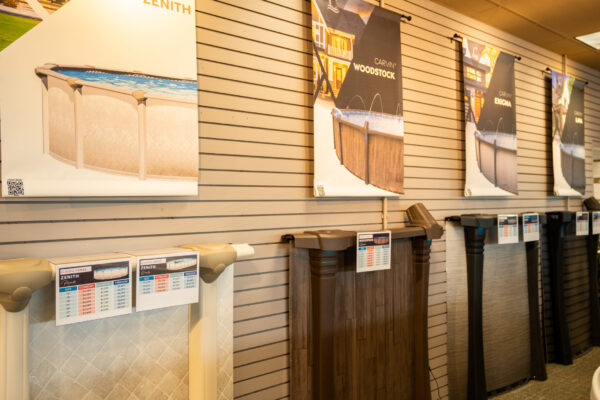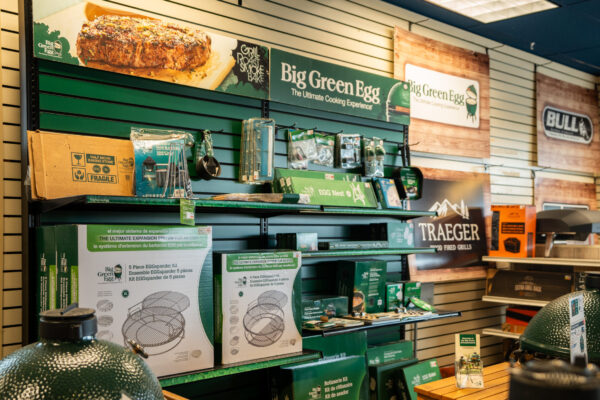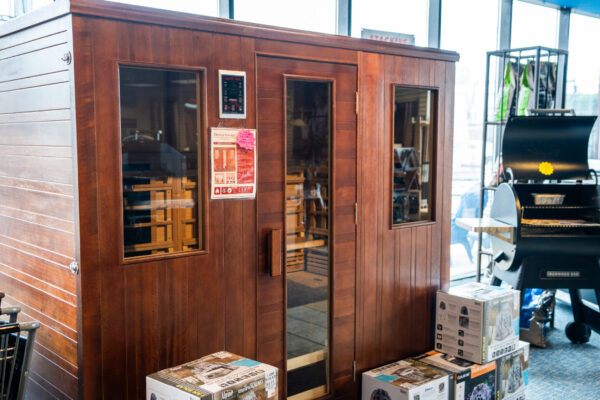The increased costs associated with tariffs impact all of us, affecting millions of people. Retailers of all kinds across Illinois import many of the goods they sell. Tariffs have created more uncertainty for retailers than many have ever experienced. The Illinois Retail Merchants Association has found that while retailers are trying to hold-off on price increases, it’s impossible to absorb the extra expenses for numerous business owners who function on very small margins – which forces consumers to pay more.
Retailers like Bob Jones, president of American Sale with locations throughout Chicagoland, enrich our economy and strengthen our communities, even during the uncertainty of increased tariff expenses. To better understand how American Sale is dealing with the escalation of existing tariffs, we sat down for a conversation with Bob.
Hot tubs. Swimming pools. Barbecue grills. Swing sets. For generations of families in Chicagoland, American Sale has been their go-to destination for anything needed to make life more fun in a backyard. Headquartered in Tinley Park, American Sale is a family-owned retailer with a 65-year history, and a motto of “bring the fun home.”
“We are in the business of making people happy. That’s what we want to do,” explained American Sale President Bob Jones. “That’s really what we’re doing when we when we sell a hot tub. We’re not selling hot water but a great time for people for years and years to come.”
Bob helped to grow the business to its current footprints of eight locations. He has been involved with the business since he was a young boy, learning the ropes from his dad who founded the business as a toy store.
“My dad was great mentor of mine,” said Bob with a smile. “He was somebody that was really fun to work with.”
These days, Bob said there is far less joy at American Sale because he finds his business in the crosshairs of the global tariff war. With approximately 25 percent of all products imported, including nearly all of their Christmas merchandise and roughly half of their patio furniture, new tariff trade policies present a significant challenge. According to Bob, the company faces a difficult dilemma. American Sale can either pay substantially higher prices for goods, which would then be passed on to customers, or they risk canceling orders and not having product to sell.
To better understand how American Sale is dealing with the escalation of existing tariffs, we sat down for a conversation with Bob.
IRMA: How are new tariffs impacting you at American Sale?
BOB: There has been a definite tariff impact at American Sale. We probably import 25 percent of the products we sell. Most of our vendors are in America, but we do juggle a significant portion of our business around with what’s happening with tariffs. We’ve been fortunate to be able to schedule our shipments from China in between some of the tariff activity. But we’re afraid that changes will hit when we’re just not going to be able to do that.
IRMA: How will that impact sales?
BOB: Our choice will be to either pay way higher prices for the product and hope that customers will make those purchases or we’ll cancel orders and just not have any product to sell. We have a big Christmas business. We’ve been selling Christmas products for over 60 years. All that stock comes from China. There are no vendors here in the United States for that. Also, we’ve had 30-year-plus relationships with our vendors in China. We were really sad before they (President Trump) announced a tariff reprieve, because we felt like we might have to cancel Christmas here at American Sale. That would be devastating.
IRMA: Would you please expand on why selling Christmas products is at risk?
BOB: We actually have had discussions about tariffs and our Christmas business. We were very close to having to make a decision to cancel our orders before the reprieve came into place. What happens after that? Not really sure. Our customers really love coming here for Christmas. It’s an experience, and it’s part of their own family tradition. To not be able to do that would be very difficult for all our loyal customers and for American Sale as a business.
IRMA: What are some of the products that you get that are imported from China?
BOB: Mostly all of our Christmas products come from China and probably half of our patio furniture comes from China as well. There’s really a bifurcation in the patio furniture business. There’s the higher end stuff and a lot of that’s made here in the United States. Then there’s the product that is less expensive. That product comes from China.
The American manufacturers really can’t afford to make that lower end product. So, that’s why we’ve always had Chinese vendors. There are a lot of customers who don’t want to spend 7, 8 or $9,000 on patio furniture. They want to spend $1,000 or $1,200. That product is just not going to be available at these high tariff rates.
IRMA: So, your customers are going to get boxed out?
BOB: I think prices are going to go up on this product, no matter if it’s online or in a store like American Sale or Walmart and Home Depot. I think what’s going to happen with these high tariffs, unfortunately, is a lot of smaller businesses will go out of business and you’re going to see the bigger businesses just get bigger. This is what’s going to happen.
IRMA: Have you already had to raise prices?
BOB: Yes, when you have a higher tariff, there’s really no choice for us. We have to raise our prices, because we cannot we work on such small margins. We can’t afford to just, “eat it,” as what the president would say. Our vendors don’t work on big margins either, so they can’t just absorb all that as well.
I think when people are out there listening to the news and listen to this talk about how vendors or retailers should “eat it,” they don’t really understand how small margins are that we all work on.
Retail is very competitive. There’s no way we can have giant margins just because of the competition. So, when you have giant tariffs that are higher than gross profits, let alone net profits, there’s no way we can’t not raise some prices to try to get through to the other side of these tariffs.
IRMA: What do you think about companies that have come out and said they will not raise their prices directly because the tariffs?
BOB: I think companies that come out and say, well, we’re not going to raise prices. They are not being truthful. They will absolutely have to raise prices. Walmart came out and they were honest about it. I’m going to say Home Depot came out and said they weren’t going to raise prices. Not true. They are going to raise prices.
IRMA: What will be the impact on what you are able to put on your shelves?
BOB: There will be a lack of merchandise on the shelves. Because you’re just not going to see companies like American Sale or any retail company bring things in and not be able to make a profit on them.
IRMA: When we are shopping or purchasing merchandise, how will we know when we are feeling the full brunt of the tariffs?
BOB: I would say the tariff impacts have not been felt yet fully in the United States. They’re going to start to be felt pretty soon, as products arrive and have new tariffs on them. But I’m not just talking about the finished goods like American Sale buys. There’s actually are other products that come into the United States that are raw materials for other things that are made in the United States. Even when you buy ‘Made in America’, what you’re also buying is something made with parts that come from other countries and most of those other countries, means China. Most of the stuff that is being made is from raw materials coming from China. There’s not enough steel and aluminum manufacturers in the United States to handle all the domestic demand. So, we need to import steel and aluminum in order to make a lot of the products that we use.
We’ve been told by our manufacturers who use a lot of steel and use a lot of aluminum, that we are going to see price increases because they have to pay the tariff. A lot of our products, such as patio furniture and swimming pools, are made with steel and aluminum. Vendors are going to have to raise their prices, even when a product is made in Americana, because it is still manufactured with products that are being imported and they will incur the tariff.
IRMA: What would you say to Illinois politicians right now about the tariff policies?
BOB: To any congressional member that might be reading this, I want to impress upon you to use whatever influence you have to reduce these tariffs and get some common sense around our policy. This is no way to run a business, and it’s no way to run a country. You’re dealing with hundreds of millions of people’s lives. It’s important to get this right. We need your influence to get this right.
In my career at American Sale, I have never dealt with more uncertainty and more challenges than I am today. A big part of that is these tariffs. The tariffs are high and they raise our costs. They’re trying to change something that’s been developed over 30 and 40 years, in just months. Then, they’re (the tariffs) on and then they’re off and then they’re on again. It has never been harder to navigate this business through these waters.
IRMA: In the end, what impact will increased tariffs have on small business and the brick and mortars in our communities?
BOB: You’re going to see many small businesses go out of business. If they go out of business, it’s very difficult to get them back. You’re going to have communities that have a lot of pain when that happens. 70% of people employ, or are employed, at a small business. These are businesses that have a lot of stress at this point. Then, businesses have banks that are looking at their credit ratings, are wondering if they’re going to survive. And it might not be the tariff that hurts a business and causes them to go out of business. It might be their banking relationship that goes away, and now they can’t afford to be in business anymore. So, there’s many things that can be affected by this. Once those dominoes start to fall, it’s going to be really hard to stop them from all falling. It will be very painful, especially for small communities that have limited numbers of family businesses in them.
To learn more about American Sale visit https://www.americansale.com.
